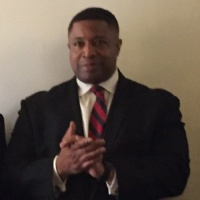Kansas City RICO Act Lawyer, Missouri
Sponsored Law Firm
-
 x
x

Click For More Info:
-
The Law Offices of Richard L. Cooper, P.A.
848 Brickell Avenue Suite 800 Miami, FL 33131» view mapDWI/DUI, Drug Trafficking, Felony Nationally Ranked Top 40 Under 40
With Richard L. Cooper you can expect a trusted confidant who will work diligently to fully understand your case and determine a road map to help you regain control of your life.
800-756-2781
Not enough matches for Kansas City RICO Act lawyer.
Below are all Kansas City Criminal lawyers.
Andrea M. Welch
✓ VERIFIEDAndrea Welch is the President of the Eastern Jackson County Bar Association (board member since 2001, member since 1999). She is also the President of... (more)
Roderick E. Smith
✓ VERIFIEDRoderick E. Smith is a practicing lawyer in the state of Missouri handling criminal defense matters.
Bryan Wayne Gentry
✓ VERIFIEDBryan Gentry, the founder of The Gentry Law Firm, has represented numerous clients in domestic, criminal, civil & traffic matters. Bryan was born and ... (more)
Christopher E. Benjamin
Kimberly J. Benjamin
Theodore (T.R.) Hoefle
FREE CONSULTATION
CONTACT
 Richard L. Cooper Miami, FL
Richard L. Cooper Miami, FL AboutMiami Attorney at Law
AboutMiami Attorney at Law ServicesCriminal Defense
ServicesCriminal Defense



